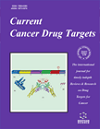
Full text loading...
Cancer stands as one of the leading causes of death worldwide, and lung cancer represents its most aggressive and persistent form. Traditional strategies for addressing lung cancer involve various medical therapies such as radiotherapy, chemotherapy, and surgical excision. Despite their prevalence, these conventional methods lack precision and inadvertently cause collateral damage to neighbouring healthy cells. Recently, nanotechnology has emerged as a potential strategy for the treatment and management of lung carcinomas, bringing about a transformative shift in existing approaches. The primary focus of this shift is on minimizing harmful effects and improving the bioavailability of chemotherapy drugs specifically targeted at tumour cells. Currently, transferosome nanocarrier systems are widely employed to overcome the obstacles presented by lung cancer. The utilisation of transferosome-loaded therapeutic medication administration technologies holds tremendous potential in regulating tumour cell growth and treating lung cancer. The purpose of this study is to provide an overview and analysis of current advancements in transferosome-based drug delivery systems, employing inhalational nanoparticle strategies for precise drug targeting in lung cancer management.

Article metrics loading...

Full text loading...
References


Data & Media loading...

